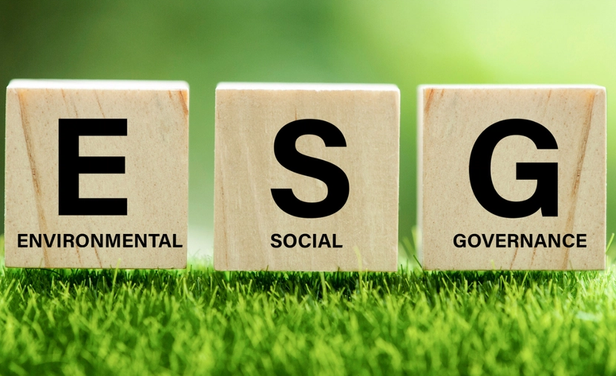

Environmental, Social, and Governance (ESG) investing is based on the understanding that companies that create value and equity for all their stakeholders – including employees, customers, and the greater community – are more likely to succeed in the long run.
The housing industry aligns itself with ESG by offering quality living accommodations for residents while also serving the needs of the environment and prioritizing organizational health. Yet, for housing providers, there can be many roadblocks along the path to high ESG scores.
Almost half of all commercial buildings today were built before 1970, many years before the U.S. Green Building Council was founded in 1993. Because these buildings were not designed with eco-friendliness in mind, combating their energy output is a challenge, as they account for nearly 40% of global energy use.

Since the industry is typically slow to adopt new technologies, housing providers can also face challenges related to employee efficiency and task management. Finally, as with any company, ensuring the health of the organization itself is another important factor.
Smart technology can help. You’ve already read our previous blog about the importance of ESG and how it’s evaluated. Now, learn how you can use smart technology to support ESG and capture the data that you need for scoring.
Interested in learning more about how SmartRent can support your company's ESG goals? Request a demo and we’ll follow up with you with more information about our platform.
How Technology Helps Build a Case for ESG
ESG investments aren't going anywhere anytime soon. Investors and portfolio managers must turn to technology in order to deliver socially and environmentally-sound housing, while holding themselves and their partners accountable to their ESG goals.
Here are a few ways smart technology directly impacts each factor of ESG:
Environmental
Whether it's by reducing energy usage to heat or cool an apartment or preventing leaks, proptech can help operators make smarter environmental decisions across their portfolio by tracking energy output and forecasting future trends. According to New York State Energy Research and Development Authority (NYSERDA), installing smart tech devices and energy monitoring systems can reduce operational costs by 15%.
Social
Teams are freed from mundane tasks when processes are automated with smart technology. That’s a huge perk, considering that 85% of Americans prefer jobs that offer flexibility. Smart technology can even combat the “digital divide” between those with access to modern technology and those without. For instance, half of the population cannot access high-speed internet. Technology like built-in broadband can solve accessibility issues like this.
Governance
A smart tech platform produces the cold, hard facts necessary to validate a company's claim that it complies with ESG factors. This data also provides insight into the health of a housing portfolio at any given time. In addition, data sets can also predict future results, so teams are prepared for what lies ahead.

Measuring ESG with the Right Data Sets
Proptech's wealth of data has proven to be a useful tool in measuring how your portfolio is performing in terms of ESG. Ultimately, you can't simply state that your communities follow ESG principles – you must be able to back it up with credible data.
The right data-driven management platform gives asset managers the edge when it comes to proving their ESG alliance by providing all the information they need to be able to prove that their portfolio is socially and environmentally responsible, as well as internally sound.
With the right web-based management application in place, you are able to track valuable metrics like how often your waste is being picked up, how you’re combatting inefficient energy usage, and how you’re making smart decisions relating to labor. Think of it as a digital paper trail that can later be used to measure your success in ESG.
Smart Devices That Complement ESG
Smart home products complement ESG because they are constantly gathering data points about their performance and usage. This ultimately provides housing operators with the granular data they need to score well on ESG evaluations.
Plus, these smart home devices make life more convenient for both management teams and residents, making them popular on both sides of the table.
Climate and HVAC control
Smart thermostats help communities curb energy consumption by enabling vacant modes and allowing residents to monitor their usage, which reduces energy output and speaks directly to ESG. With such measures in place, SmartRent clients have reported savings of around 10-20% on energy consumption.
Smart Plugs
Smart plugs turn non-IoT lamps and electronics into smart home devices. Residents will commonly purchase these plugs themselves and use them to connect to the larger smart home ecosystem. These plugs are useful because they help reduce energy waste and give residents an upscale, fully customizable atmosphere in their homes.
Asset Protection Devices
Leaks are disastrous for many reasons. Residential leaks result in the loss of one trillion gallons of water per year. Secondly, leaks can lead to mold accumulation, which is harmful to everyone's health. Asset protection devices like leak sensors mitigate this risk and lower insurance costs, so you can increase your ESG scores and save money at the same time.

Smart Waste Management
A major ESG concern for housing communities is waste management. Smart technology has provided a solution in the form of small devices that are placed inside containers to monitor fill levels. From there, communities can cut back on service, which reduces spend and carbon emissions.
Smart Tech and ESG: A Perfect Pair
ESG has become a very popular way to measure a company's value. The tracking and reporting of ESG is much easier when it is coupled with proptech devices that automate tasks, provide healthier and more equitable living spaces for inhabitants, and improve management operations.
Although we have covered a lot of ground about ESG, one more part remains. Next month, we will finish up this series by discussing how housing providers can incorporate ESG and future ESG investments. Click here to read Part 3 now!